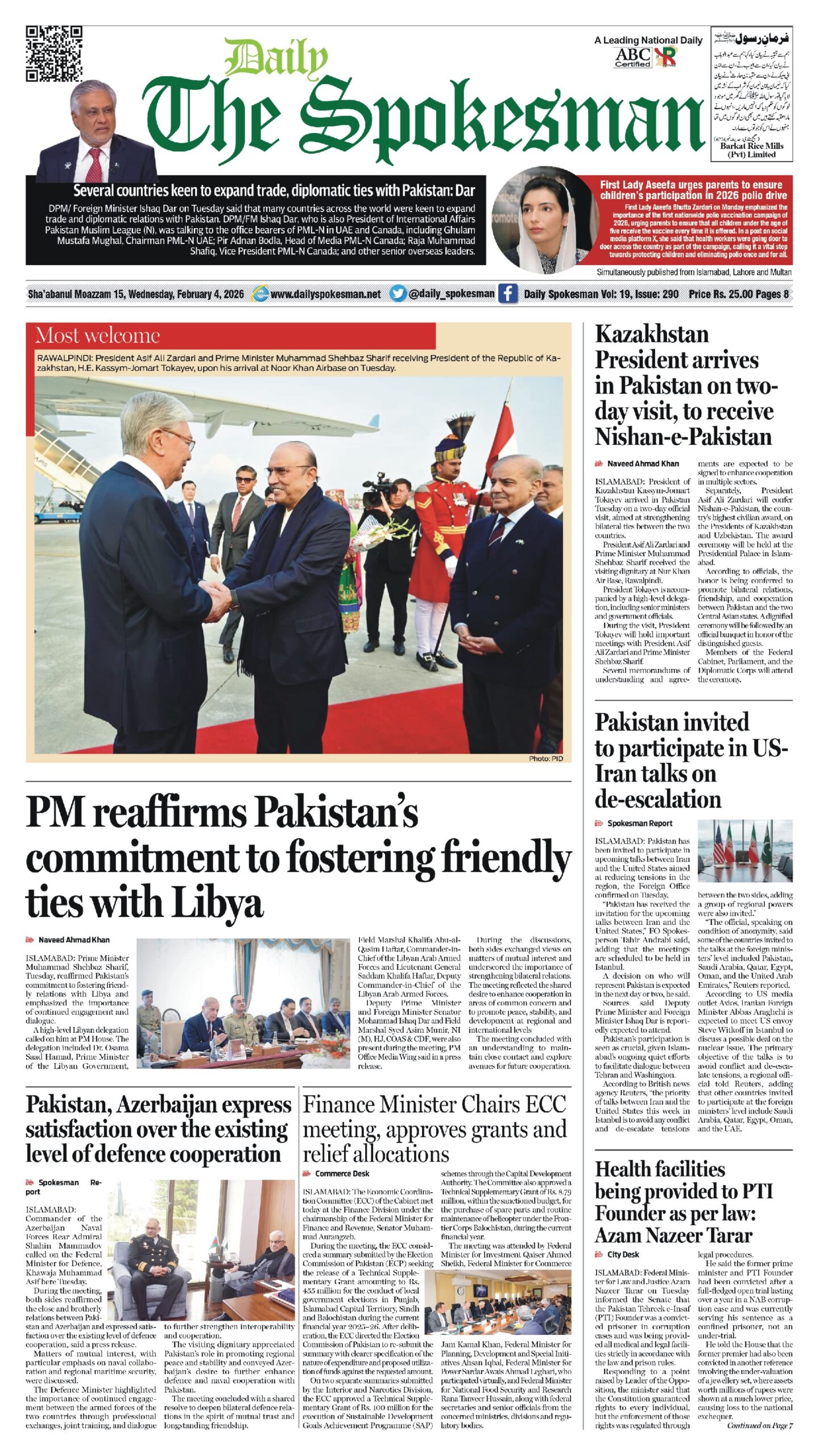Mian Anjum Nisar President of the Federation of Pakistan Chambers of Commerce and Industry has demanded sustainable agriculture policy to ensure food security in the country. He said that negligence of the agriculture could lead to the country towards severe food security and shortage of basic and essential food items would increase inflation and burden to the exchequer. He informed that due to attractive policies and benefits farmers are shifting towards less disease infected prone crops.
The president FPCCI said that Pakistan was producing 26.674 million tonnes of Wheat on 9224 thousand hectors few years back unfortunately both yield and area of production has declined to 24 million tonnes and area of production also reduced to 8825 thousand hectors. Similarly, cotton produced 13.967 million bales on 2961 thousand hectors now in the fiscal year 2019-20 the production of cotton has drastically declined to 8.5 million bales while the area of production also shrank to 2527 thousand hectors, Sugarcane production was recorded 75.48 million tonnes on 1218 thousand hectors its production and area of cultivation also reduced to 66.80 million tonnes and 1014 thousand hectors, while Rice has seen showing increasing trend both in production and area of cultivation. Rice was produced 7.41 million tonnes on 3034 thousand hectors, 2.9 percent increase in production and 8 percent increase in area of cultivation.
He further added that during Fiscal Year 2019-20 (July-March), 2.748 million tonnes edible oil of value Rs. 321.535 billion ($ 2.046 billion) was imported. Local production of edible oil during the same period was estimated at 0.507 million tonnes. Cottonseed production decreased to 2.4 million tonnes from 2.5 million tonnes while cottonseed oil production declined to 289 million tonnes during 2019-20 from 305 million tonnes in the previous years.
On the other hand India is producing 29.4 million bales with 496 kg per hector, China is producing 27.5 million bales with 1748 kg/HA, USA 19.5 million bales with 924KG/HA Brazil 12 million bales and 1686 Kg/HA while Pakistan is producing 8.5 million and yield is 618 Kg per hector.
Mian Anjum Nisar added that Pakistan’s national food security is dependent on production of essential crops that are providing both basic food and input for industrial production. However, the performance of the agriculture sector presently does not guarantee sustainable self-sufficiency.
Government should design and formulate agriculture policy on priority bases keeping in view future demand by the country. Seed is the basic input for agriculture sector and has an imperative role in enhancing agriculture productivity. The world has now focused on the use of certified seed for enhancing agriculture productivity owning to its better profitability coupled with the application of internationally acceptable quality parameters. Technology and farm mechanization can accelerate the growth of agriculture sector. Instead of disbursing rupees as subsidy/support price cost of production be reduced through direct support to purchase of machinery, fertilizers, pesticides, and other input etc. ensure infrastructure to support farm to market/industry Agri-produce.
Mian Anjum Nisar President FPCCI said that the population of Pakistan has reached 222.1 million with growth rate of 1.93 and further expansion is expected in near future despite 11.5 percent increase in cultivated land along with 187 percent increase in production of Wheat, 171 percent in cotton production and 162 percent increase in sugarcane production during the last 45 years; Pakistan is one of the marginal importers of basic food items that strongly suggests a sustainable agriculture policy to ensure future national food security.








